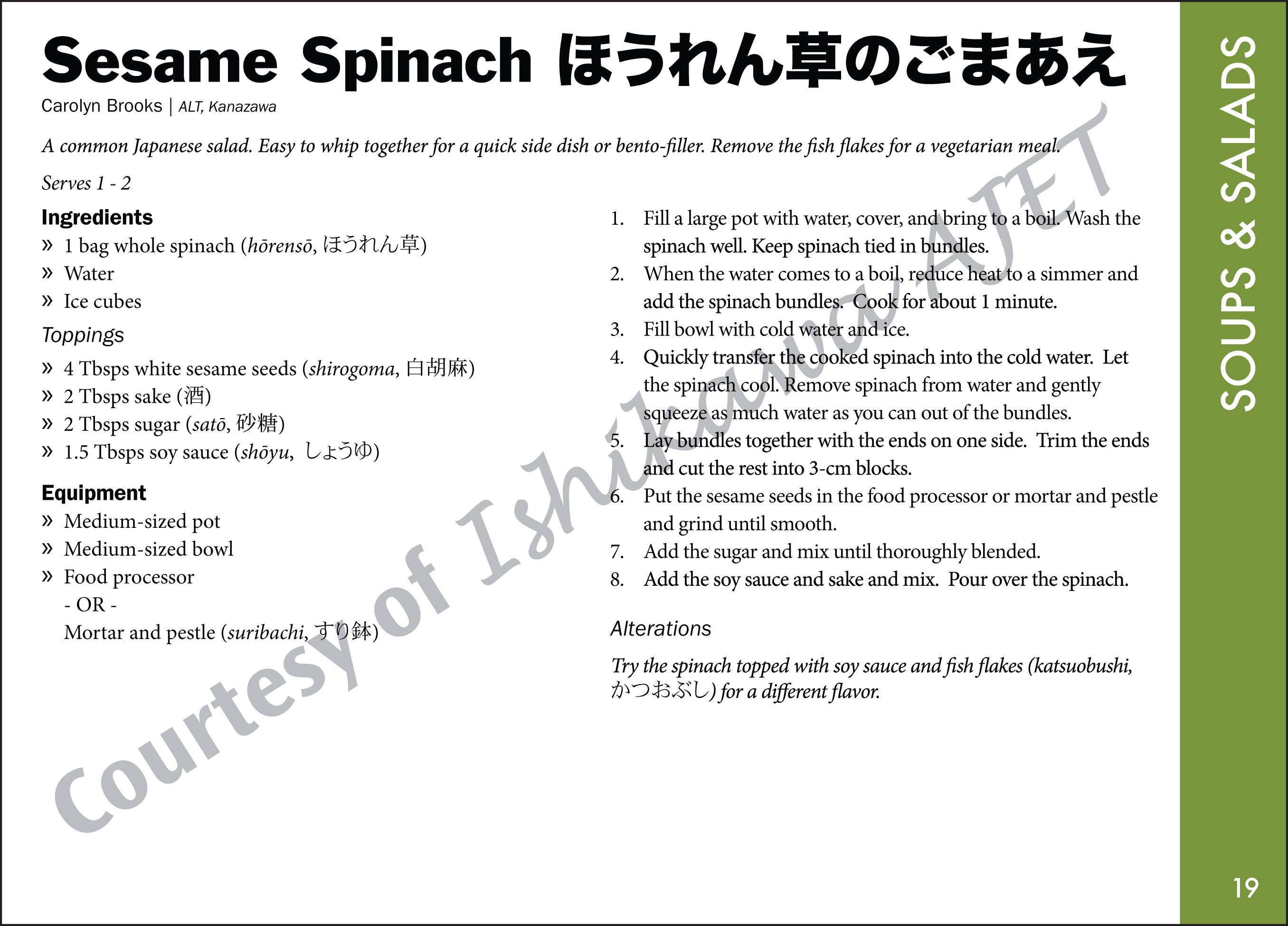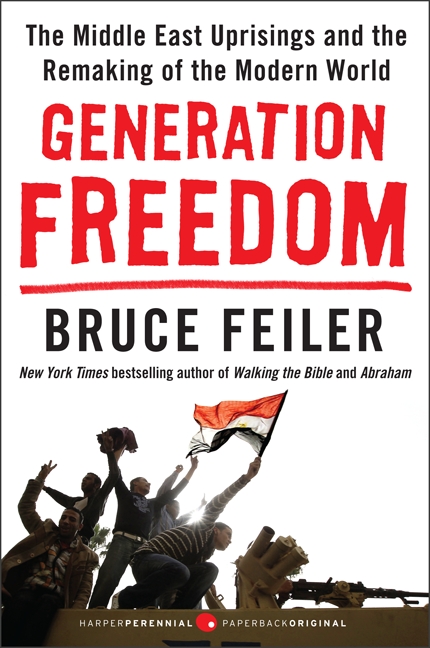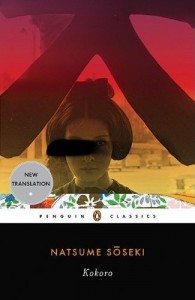JET alum author Bruce Feiler’s latest NYTimes column
September 23, 2011
By BRUCE FEILER
I RECENTLY attended a chaotic, kid-friendly gathering at the home of a friend. On my way to the bathroom to seek some solace, I decided to indulge in one of my favorite antisocial activities: scrutinizing someone else’s bookshelf. For a veteran sleuth, a bookshelf can offer a trove of insights worthy of any Freudian’s couch. Does a person alphabetize the books or clump them? Do they arrange their books by genre, order in which they were purchased, or color? Are these books unopened hardcovers or dog-eared paperbacks?
I was several minutes into my investigation (Bill Clinton’s memoir; “The DaVinci Code”), when I had a heart-sinking realization: Read More
Ishikawa AJET publishes digital cookbook for charity
Thanks to Leah Zoller (CIR Ishikawa-ken, Anamizu, 2009-11) for sharing the below. Leah is currently a writer and translator for The Art of Japan: Kanazawa, an art-based tourism project via a METI grant to the Cooperative Association for the Promotion of Kanazawa-Kaga Maki-e in Kanazawa, Ishikawa.
Ishikawa AJET has just published a digital cookbook for charity. The book is designed for the English-speaking expat in Japan.
CLICK HERE for details and to purchase the Ishikawa AJET Digital Cookbook.
When I moved to rural Ishikawa in 2009, I had to entirely revamp my philosophy on cooking: how to work with the ingredients I had available in my small town; how to cook without a full-size oven; how to deal with metric measurements; and how to cook for one. I started this project with the hope that any JET, regardless of cooking skill or Japanese language ability, could arrive in Japan and immediately have a guide to simple home-cooking and be able to make the food s/he wants to eat.
The recipes are written in English with the Japanese terms for the ingredients right on the page, along with helpful hints for navigating the grocery store. Measurements are in metrics, and the recipes are meant for Japanese kitchen equipment, so you never have to worry about recipes not fitting in the oven range or not cooking through. Furthermore, 30 JETs and friends and I did extensive testing on the recipes to make sure they all were easy to understand and actually worked correctly. The recipes are a mixture of Japanese, foreign, and fusion food, and include a large number vegetarian, vegan, and gluten-free recipes.
Because this is a pdf, we were able to save on printing costs and keep things more environmentally friendly. The pdf is interactive: there are hotlinks to recipes from the indices, and the document is searchable. Our design team did a fantastic job, and it’s a very useful friendly layout.
The cookbook costs 1000 yen, and all proceeds go to Second Harvest Japan, a charity that brings food and supplies to food banks, orphanages, single mothers, immigrants, et al. This charity has been critical in the relief efforts after the Tohoku Earthquake.
The original post on the Ishikawa JET Blog is here: http://ishikawajet.wordpress.com/2011/09/07/master-cooking-in-japan-with-the-ishikawa-kitchen/
Payment options include using paypal for a downloadable pdf (see link) or contacting AJET directly at ishikawaajet@gmail.com to pay via furikomi and receive the document by email.
****************
James Kennedy (Nara-ken, 2004-06), author of the acclaimed young adult novel The Order of Odd-Fish, will be curating the 90-Second Newbery Film Festival with the New York Public Library around November 5 and with the Harold Washington Library in Chicago around November 16. And he has a special request for JET alumni who are into film making:
There are some Newberry award winners that are about Japan and the Japanese, and nobody has done a 90-Second Newbery film of them yet!
Off the top of my head, I can think of:
(1) Heart of a Samurai by Margi Preus, which is about John Manjiro (2011 Honor Winner)
(2) Kira-Kira by Cynthia Kadohata, which is about WWII Japanese-American experience (2005 Medal Winner).
(3) Commodore Perry In the Land of the Shogun by Rhoda Blumberg. (1986 Honor Winner)
So, as for JET alumni:
(1) I’d love to put the call out to the JET alumni community, which surely must include filmmakers, to make 90-second films based on those books for the film festival. (It would be even better if they were totally in Japanese, with subtitles!)
(2) The film festival at the NYPL on November 5 will be not only films, but also live acts between the films — a kind of cabaret atmosphere — live 90-second Newbery reenactments, or songs, etc. So this is also a call out to any arts groups / comedy teams / bands / etc. who would be interested in doing something as a between-film live segment for the 90-Second Newbery film festival?
Here’s a little more info from James about the 90-Second Newbery Festival: Read More
JET alum James Kennedy reviews “Super Mario” for WSJ Book Review
 James Kennedy (Nara-ken, 2004-06), author of the acclaimed young adult novel The Order of Odd-Fish, just did a Wall Street Journal book review of SUPER MARIO, Jeff Ryan’s history of Nintendo.
James Kennedy (Nara-ken, 2004-06), author of the acclaimed young adult novel The Order of Odd-Fish, just did a Wall Street Journal book review of SUPER MARIO, Jeff Ryan’s history of Nintendo.
In the article, James apparently also had the chance to correct some bad Japanese in his book. (Who says the JET program doesn’t teach marketable skills?)
“Errors crop up. Speculating on the name of Mario’s evil twin, Wario, Mr. Ryan claims that “in Japanese, wariu means bad.” Actually, the Japanese is warui.”
The book review was in Friday’s print WSJ, and here it is online: http://on.wsj.com/paNu5f
JQ Magazine: Book Review – ‘The Beautiful One Has Come,’ short stories by JET alum author Suzanne Kamata
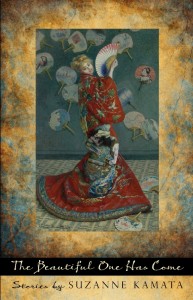
“The stories in The Beautiful One Has Come have a universal appeal but will strike a familiar note in particular with those who have spent considerable time outside their comfort zones.” (Wyatt-MacKenzie Publishing)
By Sharona Moskowitz (Fukuoka-ken, 2000-01) for JQ magazine. Sharona works at a literary agency in New York City. She is interested in fresh, new voices in fiction and creative nonfiction.
I began reading Suzanne Kamata (Tokushima-ken, 1988-1990)’s new collection of short stories with no idea what to expect and a sense of up-for-anything enthusiasm. Luckily, that feeling stayed with me throughout the collection and renewed itself automatically as I approached each new story.
There’s an enjoyably uncomfortable tension contained within the pages of The Beautiful One Has Come and it’s precisely that tension, paired with Kamata’s ability to glide between narrative points of view, that makes this collection so strong. The characters who inhabit the pages feel so true I could practically hear their pulses.
The physical settings of the stories vary from Cuba to Egypt to France to Japan among other countries, but the characters seem to inhabit spaces all their own: their minds are the true sites of conflict. The stories deal mostly with women in various states of transition; feeling like outsiders while negotiating their own identities, striving for something just out of reach, or trying to come to terms with loss. There is the foreign housewife who longs for the comforts of her native land, the elderly artist whose husband wrongfully gets the credit for the paintings she has created and the Japanese girl who is obsessed with studying abroad in Egypt.
Though these profiles might sound familiar, each story is buoyed by unique and unexpected details which keep the characters from sinking into stereotypes.
New Bruce Feiler column in the New York Times
Attached is a new New York Times column (“The Life (and Death) of the Party: Mastering the Art of Dinner Party Conversation“) by JET alum Bruce Feiler (Tottori-ken, 1989-90), author of Learning to Bow, The Council of Dads, and several books on the Middle East including Walking the Bible, Abraham and Where God Was Born.
To read prior columns, please click here.
Bruce’s new book GENERATION FREEDOM: The Middle East Uprisings and the Remaking of the Modern World has just been published. You can see some of his recent media appearances by visiting www.brucefeiler.com.
***************
This Life
The Life (and Death) of the Party
By BRUCE FEILER
Published: July 8, 2011
I CALL it my insufferability test. It came about like this: A number of years ago, I was seated at a dinner party next to the celebrated C.E.O. of an American brewery. I was the lesser player here, so I began asking him questions about his beer. Fifteen minutes passed, then 30. He didn’t ask me a single question.
As dessert approached, I began slumping in my chair from trying to come up with query after query about organic hops and fluctuating wheat futures. Finally, I started dropping in teasers from the year I spent as a circus clown. “My friend the human cannonball …”; “That reminds me of the time I once got into a cage with nine tigers.” Surely these would pique his curiosity. Needless to say, I never told a story about the circus that night.
To me that encounter was a warning shot. I was like a rookie pitcher being plastered in his opening outing in the big leagues. If I hoped to avoid similar dinner party fiascoes in the future, I had to raise my game. So what is the best formula for handling a loudmouth, know-it-all, bore or clam?
With summer entertaining season upon us, it seemed like a good time to brush up on my techniques, and perhaps pick up some new tricks. So with the help of some veterans of the tablecloth trenches, here are some tips for navigating dinner party pitfalls.
EAT AND GREET In ancient Rome, senators hired nomenclatorsto follow them around and introduce them to people. These days, each of us has to be his own nomenclator. A good host often performs this role. “A lot of dinners I throw often have a specific point to them,” said Sunny Bates, a former Silicon Alley headhunter turned networking guru. “I make everyone go around and say who they are, where they’re from and what they most need.” Other starter questions I’ve seen work: “If you could change one thing about the human body, what would it be?” and “What about you, physically, is perfect?” Knowing something about all the other guests is more than good manners; it can also come in handy if you’re seated next to a dud and need to seek relief in someone a few seats away. If I’m at an event with no host at the table, I’ll go so far as to walk around and briefly introduce myself to the other guests. Think of a dinner party as being like a crime scene: plan your escape route. Read More
Video: “Tonoharu” explained in unique video by creator Lars Martinson
****************
Lars Martinson (Fukuoka-ken 2003-2006), author of the graphic novels Tonoharu: Part Two and Tonoharu: Part 1, has put together a rather unique video that “explains” the Tonoharu series in a marvelously tongue-in-cheek way. (BTW, does anyone know if there’s a Japanese term for “tongue-in-cheek”?)
Anyway, have a look at the video. I think it’s fair to say that no one has captured the JET/living in Japan experience in as intricate a way as Lars has:
Harper Collins set to publish a new book by JET alum Bruce Feiler
JET alum Bruce Feiler (Tottori-ken, 1989-90), author of Learning to Bow, The Council of Dads, and several books on the Middle East including Walking the Bible, Abraham and Where God Was Born, has a new book to published by Harper Collins soon titled Generation Freedom: The Middle East Uprisings and the Remaking of the Modern World.
From the Harper Collins website:
At a time when the world is asking how the Arab Spring and the death of Osama bin Laden will reshape our times, Bruce Feiler, bestselling author of Walking the Bible and Abraham, offers a vivid behind-the-scenes portrait of history in the making. He marches with the daring young organizers in Liberation Square, confronts the head of the Muslim Brotherhood, and witnesses the dramatic rebuilding of a church at exactly the moment sectarian violence threatens the peaceful movement. Drawing on fifteen years of travels across the region, from Egypt to Israel, Iraq to Iran, Feiler brings his unprecedented experience to the most pressing questions: how the rise of freedom will affect terrorism; Middle East peace; and relations among Jews, Christians, and Muslims worldwide. Eloquent and thoughtful, Generation Freedom offers a hopeful vision of how this unrivaled upheaval will transform the world.
JQ Magazine: Book Review – Natsume Soseki’s ‘Kokoro’ Takes New Translation to Heart
By Sharona Moskowitz (Fukuoka-ken, 2000-01) for JQ magazine. Sharona works at a literary agency in New York City. She is interested in fresh, new voices in fiction and creative nonfiction.
In a magazine article published earlier this year, crooked former banker Bernie Madoff told the public that despite his lies, despite the lives left ruined in the wake of his atrocious crimes, he is not a bad man.
Why do I bring this up here, in a book review of Japanese author Natsume Soseki’s seminal 1914 novel Kokoro? Because Madoff could have learned a thing or two from the book. As the saying goes, the classics aren’t about what happened, they’re about what happens. And Kokoro is no exception.
The novel peels back the layers of an unlikely friendship between a callow university student and a reclusive old man to reveal how experiences shape us and relationships define us, for better or worse. Admiration, greed, curiosity, jealousy; all these ingredients swirl together in the complex stew of the human psyche, the kokoro (“heart”). Only in the face of temptation are a person’s true colors revealed.
The new translation by Meredith McKinney offers readers a more modern version without compromising the impact of the work. The novel is both timeless and timely—it’s as relevant now as it ever was. Maybe cynicism weathers the ages better than unexamined optimism. Or, maybe human nature just doesn’t change that much.
MEF Bruce Rutledge’s Chin Music Press launches innovative “BooksRX”
MEF Bruce Rutledge, founder of Seattle-based independent book publisher Chin Music Press and editor of Ibuki magazine, has launched an innovative new approach to independent book publishing:
 Mail-Order Medicine For Your Mind!
Mail-Order Medicine For Your Mind!
Announcing BooksRX In 2010, small independent publisher Bellevue Literary Press won the Pulitzer Prize for fiction with Paul Harding’s Tinkers – the first time a small press had won the award since 1981! In 2011, the media bombards us with tales of Amazon’s digital books gobbling up demand for the printed page, and yet small presses continue to pop up all over the US and Canada.
With the book business in a state of flux, we here at Chin Music Press believe that independent publishers are poised to carry the banner of the publishing world far into the 21st century. We are fortunate to find ourselves in a literal consortium of visionary presses who refuse to believe the media’s Doomsday prophecies foretelling the slow demise of the printed book. In fact, we’re convinced that our fellow indie publishers offer the perfect elixirs for eager readers and despairing booksellers alike.
Beginning June 1, Chin Music Press will offer BooksRX, a quarterly curated collection of the best that North American independent publishers have to offer. We’re excited to prescribe publishers, writers and artists whom we think should be a part of any literary medicine cabinet. BooksRX ensures that you’re getting your recommended dose of vitamin READ.
“BooksRX is undoubtedly the gateway drug for unsuspecting readers into the world of independent book publishing!”
Dr. R. Max Sneezeworthy, Literary Division, US Department of Health and Human Services
Available as a single dosage (one issue) or as a full regimen (annual subscription), each installment of BooksRX is a limited edition of 100 and arranged around a loose theme. Our first issue is inspired by our passion for finding new ways to tell stories from and about Japan.
- Monkey Business: New Voices From Japan A bold new collection including short stories, poems, an interview with author Haruki Murakami and more curated by Motoyuki Shibata and Ted Goossen, and presented by A Public Space
- An exclusive hand-numbered, signed and limited edition giclee print from L.J.C. Shimoda, fine artist and illustrator of OH! a mystery of mono no aware
- Kuhaku and Other Accounts From Japan Our first book (and manifesto to holistic book design) featuring essays and art by Roland Kelts, Craig Mod, kozyndan, Sumie Kawakami and an irreverent but highly informative glossary of Japanese terms.
BooksRX is available exclusively through the Chin Music Press online store:
- Single dose (one issue): $40 including shipping to US and Canada ($10 extra for shipping to international destinations)
- Full prescription (four quarterly issues, save $20): $140 including shipping to US and Canada, ($35 extra for shipping to international destinations)
A carefully edited selection including two dynamic books featuring new voices from Japan paired with an exclusive hand-numbered and signed art print!
More: Chin Music Press · Online Store
600 North 36th Street, #212, Seattle, WA 98103
JETAA Chicago Author Panel: Experiences Teaching English in Japan
Via JETAA Chicago May Webletter:
On Friday, June 10, 6:30-8pm, JETAA Chicago and the Japan America Society of Chicago will be hosting a panel featuring Lars Martinson and David Fernandez, two JET alumni authors.
Mr. Martinson, cartoonist and author of Tonoharu, and Mr. Fernandez, author of Rising Sunsets, will share their experiences teaching English in Japan, relive funny cultural stories, and mention how these experiences shaped the writing of their books Tonoharu and Rising Sunsets.
Please join us at Barnes & Thornburg LLP, 1 N Wacker Suite 4400, Chicago, IL 60606.
Tickets are $5 for JASC & JETAA members, $10 for general admission.
Space is limited so RSVP soon to Erika Kono at kono@jaschicago.org.
JET Alum Authors: Ari Kaplan – “The Opportunity Maker: Strategies for Inspiring Your Legal Career”
 I recently learned of yet another JET alum author, Ari Kaplan (Hyogo-ken, 1993-94) who practiced law for nine years at a big firm before setting out on his own and, among other things, writing The Opportunity Maker: Strategies for Inspiring Your Legal Career Through Creative Networking and Business Development which became a big hit in the world of lawyers and especially among law students facing an increasingly uncertain job market and career prospects.
I recently learned of yet another JET alum author, Ari Kaplan (Hyogo-ken, 1993-94) who practiced law for nine years at a big firm before setting out on his own and, among other things, writing The Opportunity Maker: Strategies for Inspiring Your Legal Career Through Creative Networking and Business Development which became a big hit in the world of lawyers and especially among law students facing an increasingly uncertain job market and career prospects.
It turns out Ari, who speaks regularly at legal career events, has a new book coming out soon on the theme of “reinvention” intended not just for lawyers but for all professionals re-thinking their careers in a society where the ground increasingly seems to shift below our feet.
For more information about Ari, visit his website at www.arikaplanadvisors.com. You can also see media coverage of him on WGN-TV Chicago, in the Wall Street Journal’s Law Blog and in the Houston Chronicle
JQ Magazine: Book Review – “The Thousand Autumns of Jacob de Zoet”
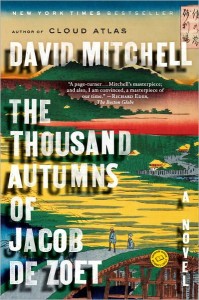
"Brimming with potent imagery, the novel is suffused with a generous dose of personal observation and philosophical musing, much of which sounds strikingly contemporary." (Random House)
By Sharona Moskowitz (Fukuoka-ken, 2000-01) for JQ magazine. Sharona works at a literary agency in New York City. She is interested in fresh, new voices in fiction and creative nonfiction.
A former Japanese colleague of mine once described his homeland to me as an “island of repression.” He spoke with mixed emotion of the burdensome pressure Japanese feel to fulfill their cultural and societal duties and how his lifelong dream was to escape for a year and live abroad. He lamented his kinsmen’s gradual loss of “Japaneseness,” fearing that despite the superficial Westernization, or perhaps because of it, Japan was barely keeping up with the rest of the world. Interested to hear more I pressed him to elaborate. He shifted his eyes downward, paused a moment, and took a long deep breath before finally responding, “Maybe…it’s complicated.”
Complicated indeed. David Mitchell’s historical novel, The Thousand Autumns of Jacob de Zoet which takes place at the turn of the 19th century, paints a vivid portrait of a bygone Japan with its rugged landscape, samurai lords and characters who commute by horse and palanquin. Medicine is administered in the form of crude herbal concoctions and the natural world is generally viewed through a lens of superstition. Nevertheless, those who know Japan well will recognize a familiar current running throughout the narrative. To read the book is to get a feel for the seeds of what would eventually flower into the complexity of modern day Japan as we know it.
The story is set near Nagasaki on the island of Dejima where the eponymous hero lives and works for a Dutch trading company. Dejima has been designated a Dutch trading post and its foreign denizens are strictly forbidden from entering the mainland, their interactions with the Japanese governed by rigid rules and careful monitoring. Jacob’s original plan was to come to Japan for five years, accrue a nice fortune and return to Holland to marry his fianceé Anna. His plan, however, is thrown off kilter by unforeseen complications including dubious business practices, a bleak future and most profoundly, his burgeoning secret love for Orito Aibagawa, a Japanese midwife on the island. Orito is highly educated and hardy, unlike the other women we encounter in the novel. Something of a feministic anachronism, she is more concerned with scholarly pursuits than domestic life. With her ironclad will and opinions expressed without equivocation, one imagines that even today she would stand out in Japanese society. (And due to her strong character she still wouldn’t care.)
Orito’s physical appearance is marred by a burn scar on her left cheek, putting her at a considerable disadvantage in finding a suitable Japanese marriage partner. To Jacob, though, her beauty is unique; he is unfazed by her scar and perhaps even more intrigued with her because of it. Unfortunately, he knows that as a foreigner she is entirely off limits to him. Captivated by her exoticness, he ponders, “to what God would a Japanese midwife pray?”
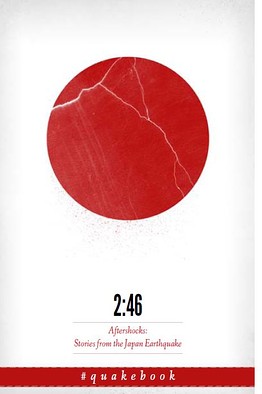 Fukushima City JET Brent Stirling recently put out word to JETAA chapters about Quakebook, “a book of stories, art and photographs that reflected first person accounts of the disaster” which will soon be available on Amazon.com with all proceeds going to benefit the Japan Red Cross. Brent contributed his own story and has also offered to help with marketing and spreading the word. Below Brent provides some insight into the unique process that led to the creation of of the project as well as his own involvement.
Fukushima City JET Brent Stirling recently put out word to JETAA chapters about Quakebook, “a book of stories, art and photographs that reflected first person accounts of the disaster” which will soon be available on Amazon.com with all proceeds going to benefit the Japan Red Cross. Brent contributed his own story and has also offered to help with marketing and spreading the word. Below Brent provides some insight into the unique process that led to the creation of of the project as well as his own involvement.
I lived in Fukushima City from August 2006 to August 2010 and worked as an ALT there. The recent earthquake, tsunami and nuclear crisis in Tohoku has had me glued to my computer since it began, as has probably been the case with all JET Alumni. Keeping in contact with my friends in Fukushima-ken through Facebook and Twitter, I felt helpless as far as how to help and what to do.
With limited access to news in the first days after the quake, I compiled information from friend’s Facebook status updates, Twitter and a variety of news sources. I sent these updates via Facebook to my friends who didn’t have the time to comb through the news in order to get an accurate picture of what was going on. Updates included news about transportation, gas, areas with running water, wind directions, reactor conditions and radiation levels. Facebook became a source of news for everyone in the prefecture. The current and former Fukushima JET community along with Japanese people worked together in order to get a clear picture of what was going on in Fukushima.
A week after the earthquake, I was sent a link to a blog asking for contributions about the earthquake. The blogger, OurManInAbiko, hoped to create a book of stories, art and photographs that reflected first person accounts of the disaster. He vowed to edit all the submissions and donate all of the proceeds to the Japanese Red Cross. Looking to help anyway I could, I put in a submission about my experience in Canada throughout the ordeal and how proud the JETs and Japanese community had made me throughout the crisis. My submission discusses sensationalism in the media and how the JET community worked together using social media to overcome adversity and share accurate news on the situation as it unfolded. I didn’t know that within 15 hours, OurManInAbiko had received 74 eyewitness submissions from all over Japan, as well as reactions from elsewhere in Asia, Europe and North America.
Through Twitter, the idea of #Quakebook grew. Just as the Fukushima-ken JETs had used social networks in order to keep in contact, #Quakebook was using the networks in order to promote and create a book. People joined in to spread the word and help with the logistics of publishing a book of this magnitude in such a short span of time. Soon after, writer, William Gibson wrote a piece for the book, then Jake Adelstein contributed, Yoko Ono has recently come on board, offering her own piece in Japanese and English Through the work of so many on Twitter from all over the world, #Quakebook began to take off. Articles appeared on the BBC website, the Wall Street Journal and CNN Go to name a few. Amazon has agreed to publish the book, waiving all of their fees with 100% of the money going to the Japanese Red Cross. The all-volunteer team of #Quakebook is now working at getting translations of the book into different languages so that it can be a truly worldwide phenomenon.
The group that comprises the Quakebook team is continually growing. Every person involved is using their skills and their own contacts in order to get the word out to every corner of the globe. The team, while working closely is completely anonymous as everyone is referred to by their Twitter names. My role has been very small throughout the Quakebook marketing process, but I believe in the book and I think it has the potential to bring people who are otherwise removed from the situation in Japan closer to it. In buying the book, not only are people making a donation to the Japanese Red Cross, but they’re also getting the stories of the people involved, the people that this disaster has affected.
I know that all JET Alumni are tied to Japan the same way that I am. Everyone’s time in Japan had a profound affect on where they are now and what they’ve done with their lives. I’m hoping that this connection to Japan will get JET Alumni Associations worldwide to support and promote this book as best they can. By putting a link to the Quakebook website on your blog, printing Quakebook posters for around your neighbourhood or your local library or getting it into the media wherever you are, everyone can make a difference in this project and help with the relief efforts in Japan.
- Pre-order the book at www.quakebook.org
- Excerpts from Quakebook
- Brent’s re-work of his submission
Roland Kelts helps launch debut issue of “MONKEY BUSINESS: New Voices from Japan” with April/May events in NYC
******************
Via Roland Kelts (Osaka-shi, 1998-99), author of Japanamerica and the contributing editor for MONKEY BUSINESS: New Voices from Japan:
A Letter from A Public Space (Brooklyn-based literary publication):
A Public Space Literary Projects announces the debut issue of MONKEY BUSINESS: New Voices from Japan, with April/May launch events in New York City.
New York City, New York, April 4, 2011—A Public Space (APS) announces publication of the first annual English language edition of Monkey Business: New Voices from Japan (MB), supported by a generous grant from the Nippon Foundation. Three launch programs in New York City in late April and early May will bring together authors, translators and editors from Japan and the US for this first-of-its-kind trans-cultural literary event. Twenty-five percent of all MB sales will go toward the Nippon Foundation/CANPAN Northeastern Japan Earthquake and Tsunami Relief Fund.
Monkey Business is a Tokyo-based Japanese literary magazine founded in 2008 by award-winning translator, scholar, editor and author Motoyuki Shibata. One of Japan’s best known and most highly regarded translators of American fiction, Shibata has won numerous accolades, most recently the 2010 Japan Translation Cultural Prize for his translation of Thomas Pynchon’s Mason & Dixon, and has introduced to Japanese readers works by Paul Auster, Steven Millhauser, Rebecca Brown, Stuart Dybek and Steve Erickson, among others.
Shibata, who was interviewed in the first issue of APS, modeled MB in part on the Brooklyn literary journal. Founded in 2006 by editor Brigid Hughes, A Public Space is devoted to cutting-edge literature—not just from American contributors, but by writers and artists spanning the globe. Each issue presents a portfolio that explores an international literary scene. The debut issue of APS featured a portfolio from Japan, curated and edited by author Roland Kelts (Japanamerica) and MB founder Shibata, and featuring contributions from Haruki Murakami, Yoko Ogawa, Kazushige Abe and others. Issue 1 was praised by readers in the US and Japan and has long been sold out.”
Read More

